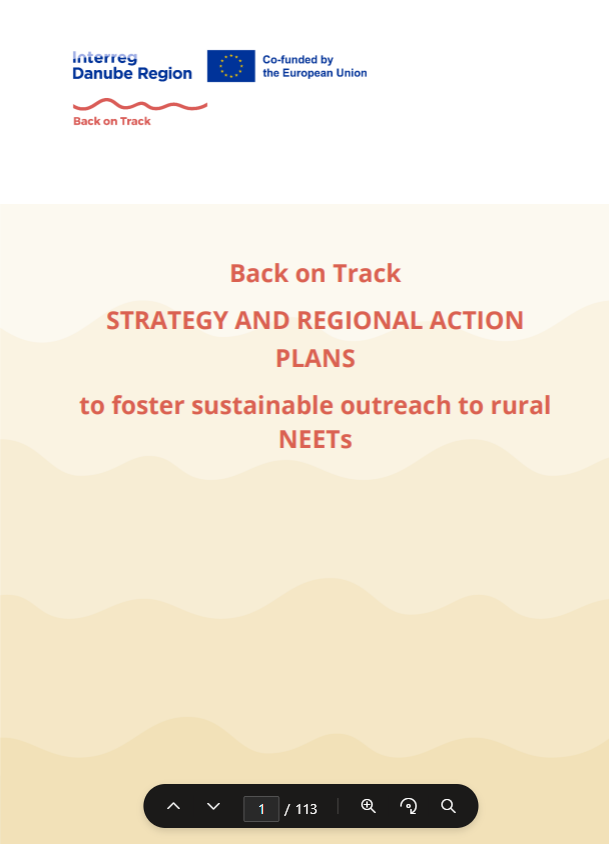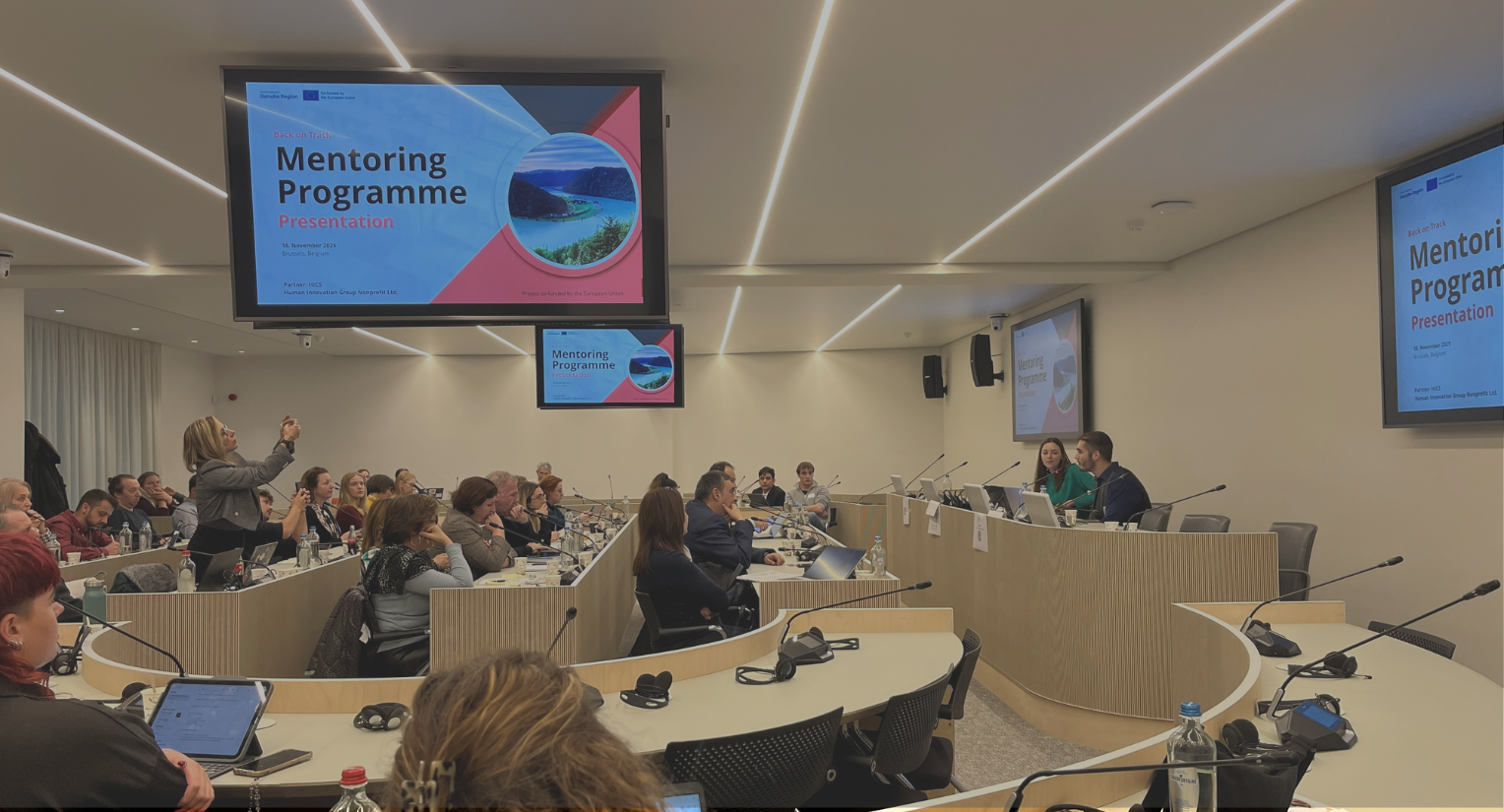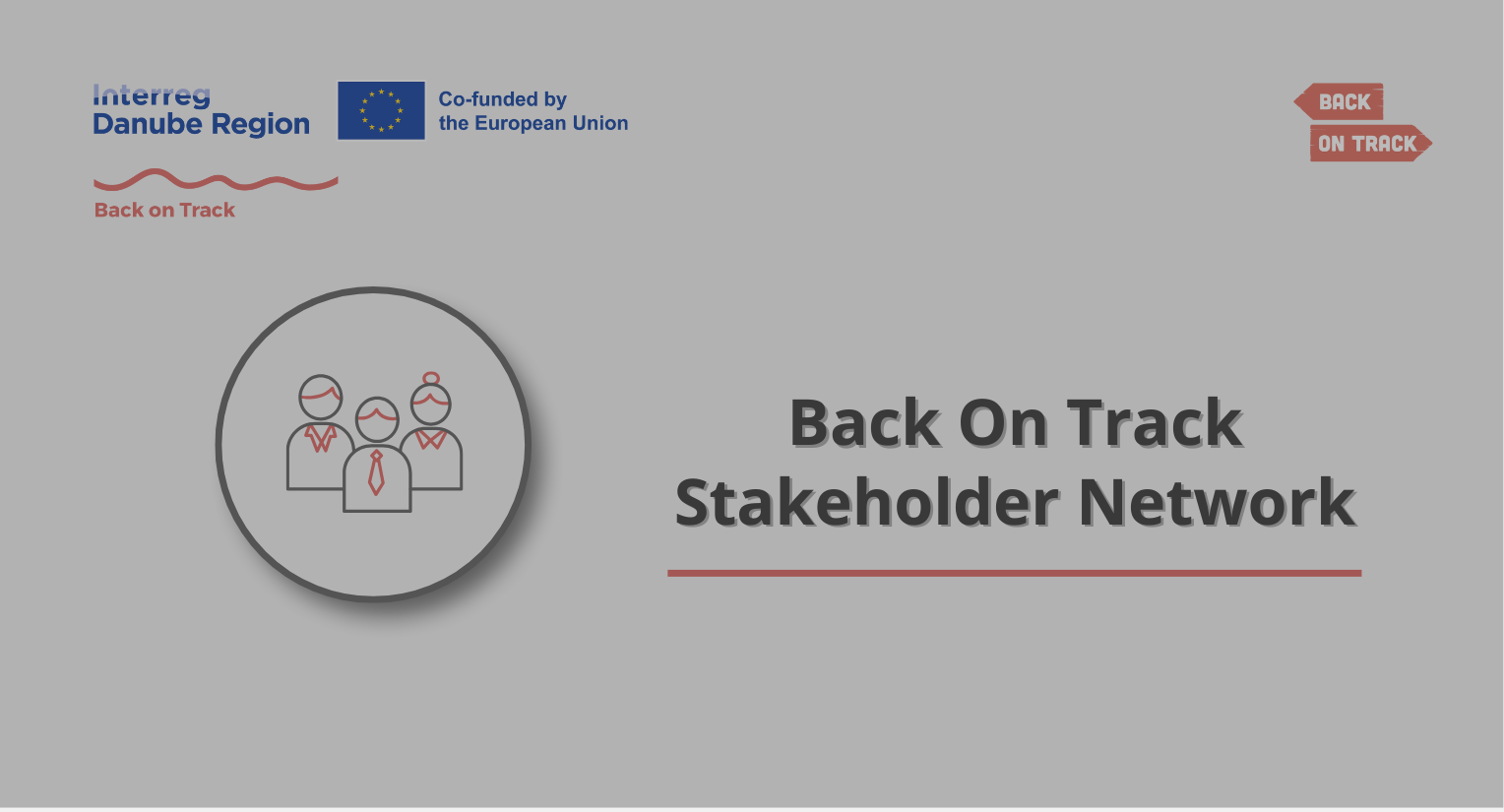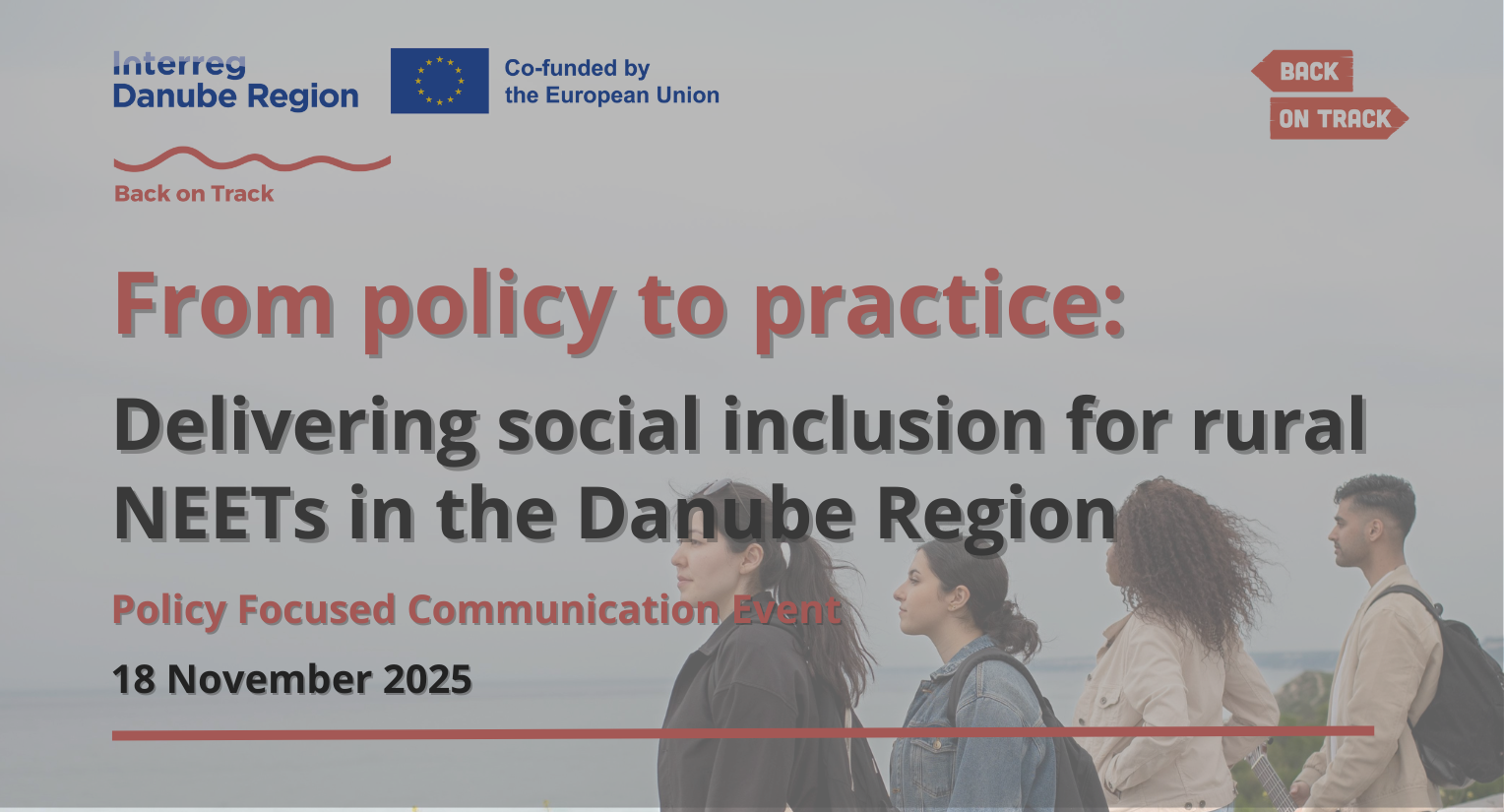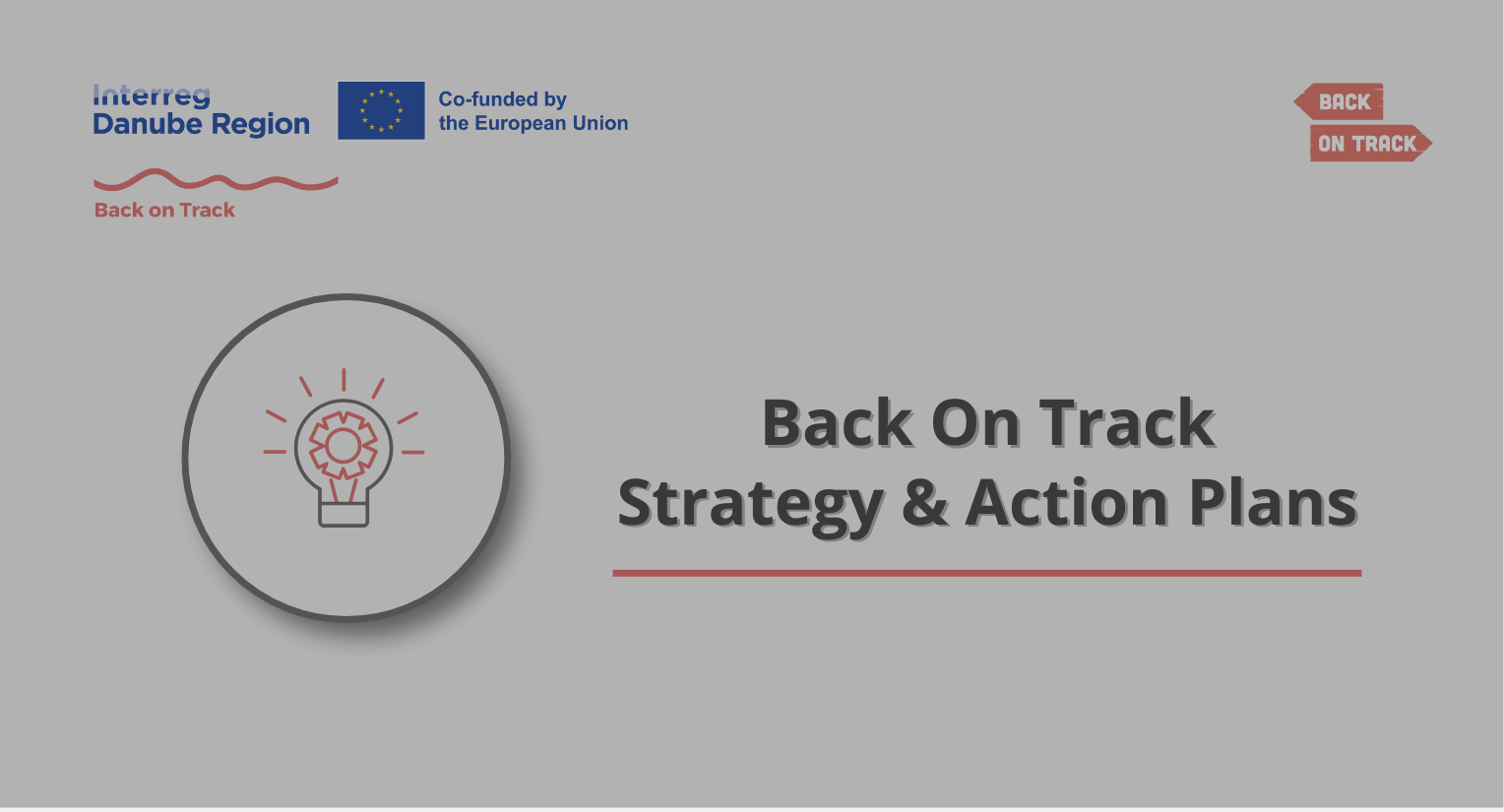
A Shared Strategy to Support Rural NEETs in the Danube Region
The Back on Track (BoT) project, funded by the European Union under the Interreg Danube Region Programme, is tackling a pressing challenge: how to support young people who are Not in Employment, Education, or Training (NEETs), especially in rural areas of the Danube region.
By creating sustainable pathways for NEETs to re-engage with their communities and access opportunities, the project aims to contribute to more inclusive and resilient regional economies.
The Back on Track Strategy and Regional Action Plans, designed to effectively and sustainably address the needs of rural NEETs, serve as an engagement and outreach framework for key stakeholders. The strategy encompasses a wide range of actors, including government bodies, industry associations, employment services, youth councils, NGOs, and organizations working in the employment & education sectors.
Collaboration Across Ten Countries
The BoT project unites partners from Austria, Bosnia and Herzegovina, Bulgaria, Czech Republic, Germany, Hungary, Romania, Serbia, Slovakia, and Slovenia. Together, they combine knowledge, experience, and innovative practices to co-create solutions to youth exclusion.
This transnational approach ensures that each country’s strengths contribute to building a shared strategy tailored to the realities of rural youth across the region.
Building the BoT Strategy
Developing the BoT strategy was a step-by-step process that included:
Research & Data Collection – Country reports and best practice compilations mapped the situation of NEETs, highlighting demographic and socio-economic trends.
Stakeholder Consultations – Peer review groups, government representatives, NGOs, and young NEETs themselves shared their perspectives on barriers and opportunities.
Policy Analysis – Aligning with EU and national frameworks, such as the Youth Guarantee, to ensure synergies with ongoing initiatives.
Validation Workshops – Collecting feedback from stakeholders to shape a strategy rooted in real needs and regional priorities.
The Strategy Framework
The BoT Strategy addresses NEET challenges through five interconnected pillars:
Professional & Social Skills – strengthening employability and life skills.
Digital Literacy – closing the digital gap in rural communities.
Public Services Access – improving access to essential services.
Employment & Self-Employment – creating opportunities for work and entrepreneurship.
Improving Living Conditions – tackling exclusion by addressing housing, healthcare, and social protection.
At its core, the strategy envisions an inclusive Danube region where all young people have equal opportunities to learn, work, and thrive.
From Vision to Action
The BoT Strategy translates this vision into three overarching goals:
Economic Opportunities – boosting employability and entrepreneurship.
Quality of Life – ensuring better access to housing, healthcare, and social services.
Education & Development – providing education, training, and resilience-building opportunities.
To achieve these, the strategy outlines 12 priorities and 36 measures, tackling challenges such as youth unemployment, skill gaps, the digital divide, and socio-cultural barriers like stigma and discrimination.
Making it Work
The implementation framework foresees:
Local Implementation Teams working with educators, social workers, and businesses.
Feedback Mechanisms to include the voices of NEETs and stakeholders.
Public-Private Partnerships to broaden outreach and impact.
A Collective Effort for the Future
The Back on Track strategy is more than a policy document: it is a roadmap for action across the Danube region. By joining forces, partners are creating opportunities for rural youth and paving the way for a more inclusive future.
Stay tuned as we move from strategy to practice, sharing stories of how these ideas are turning into concrete change for young people across the region.
News & Events
Read the most recent updates and explore the upcoming events.

